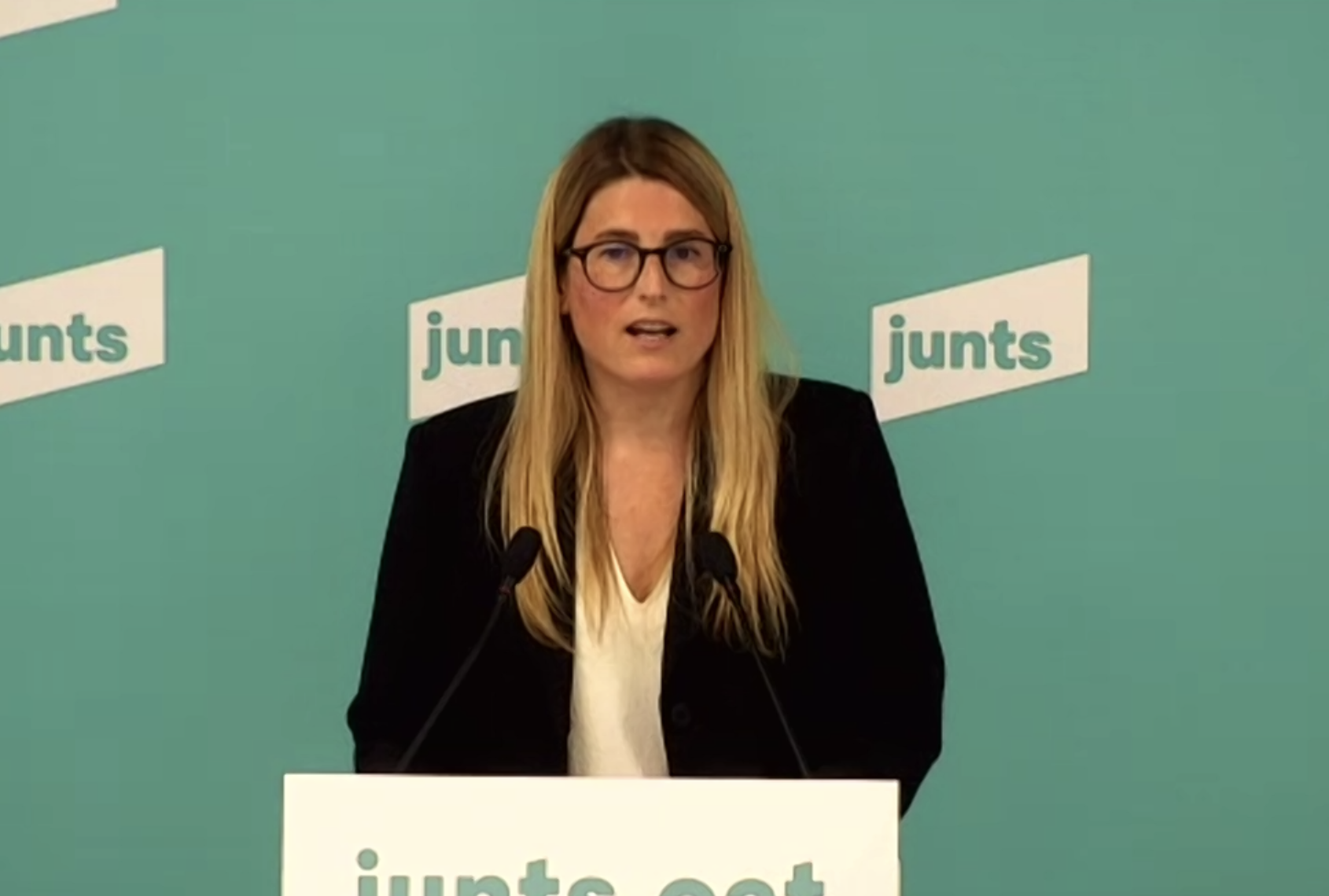The pro-independence Together for Catalonia (Junts) party is in complete disagreement with the reticences expressed by Oriol Junqueras, jailed leader of the governing partner ERC, on the unilateral route to Catalan indepedence. The party's spokesperson, Elsa Artadi, warned that "the independence movement has an obligation to explore all avenues and not rule out any".
The ERC leader today published a letter through the Al Rojo Vivo programme on Spanish network La Sexta as well as in the newspaper Ara, in which he advocates dialogue and agreement and warns that "other avenues are not viable or desirable." Artadi replied that this is not the position proposed by all the pro-independence political forces in Parliament or the civil society organizations.
"The 1st October referendum was a unilateral action and, as far as I know, the independence movement has not given up the 1st October vote," said Artadi, who despite admitting that there are paths that they would prefer and that are less painful, warned that none can be ruled out, "they must be kept open because it is the only way."
National Pact on Self-Determination
"We are not the only ones marking this route - in particular, the Spanish state is marking it," said the Junts spokesperson, stressing that Quebec held two referendums, both unilateral, and Canada reacted very differently than did the Spanish state. "It is Spain that limits the solution to the political conflict," she said.
Artadi not only disagreed with Junqueras but took the opportunity to demand the implementation of the National Pact on the Right to Self-Determination, which is included in the government agreement that ERC made with Junts, and also in the ERC pact with the CUP. "Surely it would be the right time to push that forward, to activate it and return to the great consensus of our country, which is on exercise of the right to self-determination," she suggested.
Sánchez-Aragonès meeting
The Artadi press conference took place at the same time as the Spanish and Catalan leaders, Pedro Sànchez and Pere Aragonès, were meeting for the first time at the Foment del Treball employers' association, after a first telephone conversation between the two, which took place last Friday.
The Junts representative rejected that these first contacts had great importance, placing them as part of the institutional courtesy after the formation of a new government, and denied that they could be considered a turning point, viewing from a distance the negotiation of which the two executives spoke.
"I would frame it in the context of diplomatic courtesy with a newly formed government. It remains to be seen whether this Spanish government and in particular Pedro Sánchez wants to get somewhere through sincere dialogue," she warned.
"Shadow" government
At the press conference, Artadi also relativized the "shadow" government presented by the Catalan Socialist leader, Salvador Illa, stressing that mantaining oversight over the government is the task of all parties in opposition. However, she also noted with irony that at least the move shows that Illa has finally accepted that he is in opposition.
In relation to the debate on the future of the El Prat airport, she warned that for years the political sphere and key actors in Catalan civil society have demanded the improvement of Barcelona's airport, and she criticized the attitude of the Spanish airport operator AENA, "which has systematically discriminated against El Prat airport" and now proposes an extension without environmental specifics. "A solution must be sought but it must have the consensus of the administrations," she concluded.
In the main image, Elsa Artadi during this Monday's press conference

